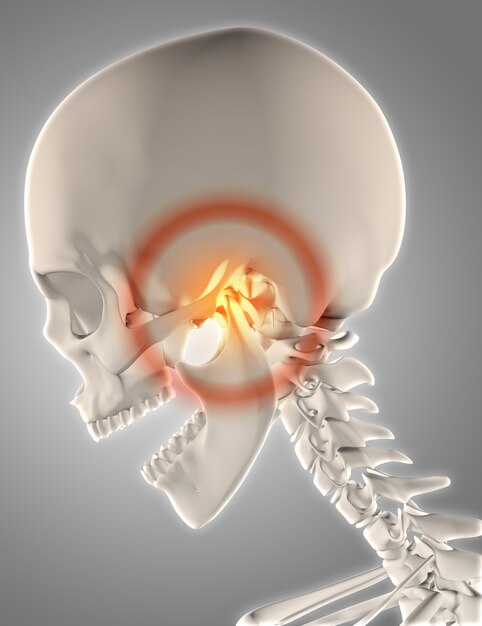
Jaw pain is a discomfort or soreness felt in areas around the jaw, such as the lower jawbone (mandible), the temporomandibular joint (TMJ), or the surrounding soft tissues. The TMJ is the joint that connects your lower jaw to the temporal bone of your skull, enabling movement between the upper and lower jaws. It’s one of the most frequently used joints in the body.
Jaw pain can either come on suddenly or develop gradually, depending on the cause. It might be mild or intense enough to make everyday activities, like eating or speaking, uncomfortable. Often, jaw pain can be noticed during common actions like chewing, swallowing, or even touching the jaw area. Many cases can be managed with home remedies, such as resting the jaw, eating smaller bites, or avoiding foods that require excessive chewing.
### Causes of Jaw Pain
Jaw pain is broadly categorized into two types: primary and secondary pain. Primary pain originates directly from issues with the jaw itself, while secondary pain stems from problems in other areas of the body. Both types can often be addressed with early and proper treatment.
Common causes of jaw pain include temporomandibular joint disorders (TMD), trauma, and sinus infections. In some instances, jaw pain may occur due to conditions like migraines or heart attacks, making it difficult to pinpoint the exact cause. Pain can be linked to nerves, soft tissues, muscles, bones, or other areas of the body.
Sometimes, jaw pain comes from other parts of the body, which is referred to as “referred pain.” Various factors can contribute to jaw pain, including TMD, tooth infections, injuries, joint degeneration, gum disease, or abnormal bony growths around the jaw area.
### Signs and Symptoms
The symptoms of jaw pain can vary depending on underlying conditions. While the pain predominantly affects the jaw, other parts of the body may also feel the impact. For example, infections or inflammation that cause jaw pain may also result in a fever.
Other possible symptoms include:
– Dizziness
– Earaches
– Facial fatigue
– Mild fever
– Headaches
– Difficulty opening the mouth
– Neck pain
– Popping sounds while chewing or yawning
– Shoulder pain
– Swelling around the jaw
– Numbness in the tongue
– Toothaches
In some cases, jaw pain can coincide with more severe symptoms, such as those associated with a heart attack. These symptoms require immediate medical attention and may include chest pain, shortness of breath, difficulty swallowing, jaw locking, nausea, vomiting, or excessive sweating.
### Treatment
In the initial stages, jaw pain is often treated with over-the-counter (OTC) pain relievers such as ibuprofen or acetaminophen. For TMD or teeth grinding (bruxism), dentists may recommend wearing splints to prevent clenching the teeth during sleep. Jaw exercises are often suggested to relieve stress and improve strength.
One approach for managing TMD involves intra-aural devices, which are small plastic inserts placed in the ear to alleviate pressure on the TMJ. For more severe cases, procedures like arthrocentesis—where an anti-inflammatory solution is injected into the joint—or jaw repositioning surgeries may be necessary.
Simple remedies can also bring relief. For example, gently massaging the jaw muscles can ease tension and improve strength. Alternating between hot and cold compresses is another effective method. A warm compress can relax the muscles by increasing blood circulation, while a cold compress can reduce inflammation and swelling.
To address issues like teeth grinding or clenching, try placing your tongue between your teeth as a barrier. Maintaining a proper jaw posture—keeping the tip of your tongue on the roof of your mouth, just behind your front teeth—can also help.
### Prevention
Preventing jaw pain largely depends on its underlying cause. Simple measures such as giving proper rest to the jaw, reducing daily stress, and avoiding actions that put pressure on the jaw are essential. Maintaining good dental hygiene can also prevent infections and gum disease, which are common causes of jaw pain.
Some additional tips to help avoid jaw pain include:
– Avoid chewing gum.
– Steer clear of hard or chewy foods.
– Don’t intentionally make your jaw pop.
– Refrain from clenching or grinding your teeth.
### Conclusion
The severity of jaw pain can vary based on its root cause, but early treatment can help manage the condition effectively. Without proper care, jaw pain can progress, potentially leading to serious complications like jaw replacement. Taking preventive measures and seeking timely treatment can keep these issues at bay so you can maintain your overall well-being.